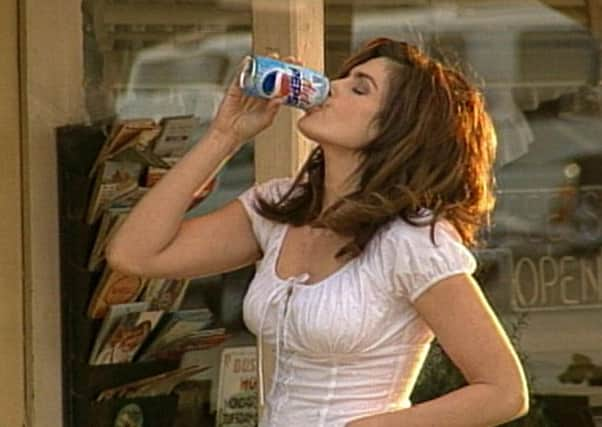Lizzy Buchan: Common sense is key ingredient in sugar debate


The latest study to add to the general swirl of confusion came from Imperial College London this week, as a group of researchers turned their attention to our sweetest poison.
Sugar has become the focus of attention in recent years, with a growing body of evidence suggesting links to Alzheimer’s disease, cancer, diabetes and heart disease. It has also become the fashionable thing to avoid, replacing the traditional enemy saturated fat in the battle against the growing obesity crisis.
Advertisement
Hide AdAdvertisement
Hide AdHowever, the research from Imperial College London has caused a stir, claiming that sugar-free drinks are no more helpful for maintaining a healthy weight than their full-sugar versions.
The team hypothesise that diet drinks stimulate the tastebuds to crave sweet things and also encourage people to eat more because they feel they are being healthy.
The article – which is a commentary on current research rather than a new study – has generated plenty of debate.
Senior doctors were quick to point out that people would often benefit from reducing their calorie intake to reasonable levels and while water was best, drinking diet drinks was an easy way to cut their calories.
The Imperial College London article makes some interesting points about what causes people to crave different foods, but critics are right to say that the message is confusing.
Professor Naveed Sattar, a metabolic medicine expert from Glasgow University, said: “Whilst I agree the evidence base in terms of proper trials comparing sugary drinks with diet drinks are lacking for real end-points like weight or heart disease, intuitively a drink which contains lots of calories – ie, a sugary drinks – versus one that contains few or no calories – ie, diet drinks – must be worse for health given clear adverse effects on dental health and clear gain of calories and so weight gain potential. To suggest otherwise would be irresponsible.”
The problem is that diets have changed dramatically over the past 40 years, backed by an explosion in obesity and related diseases, so public health experts are desperately trying to understand what is going on.
Another problem is there are significant vested interests around sugar, blurring the picture even more – although it is worth pointing out that many organisations have started to accept the need to reformulate products to include less sugar.
Advertisement
Hide AdAdvertisement
Hide AdThere is likely to be more of a focus on sugar than ever in the coming year, as debate over the need for a sugar levy intensifies.
We must accept the bitter truth that our sugar consumption needs to be moderated, but panicking and trying to cut it out of our diets entirely is unwise.
Natural sugars occur in a number of healthy foods such as fruit, vegetables, milk-based products and bread.
Refined sugars present in sweet treats are of greater concern, but most experts agree they can be eaten in moderation.
The science is always evolving so the rest of us are better off adding a spoonful of common sense to our daily diet.